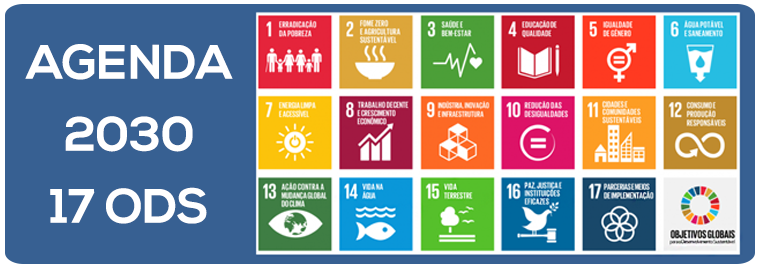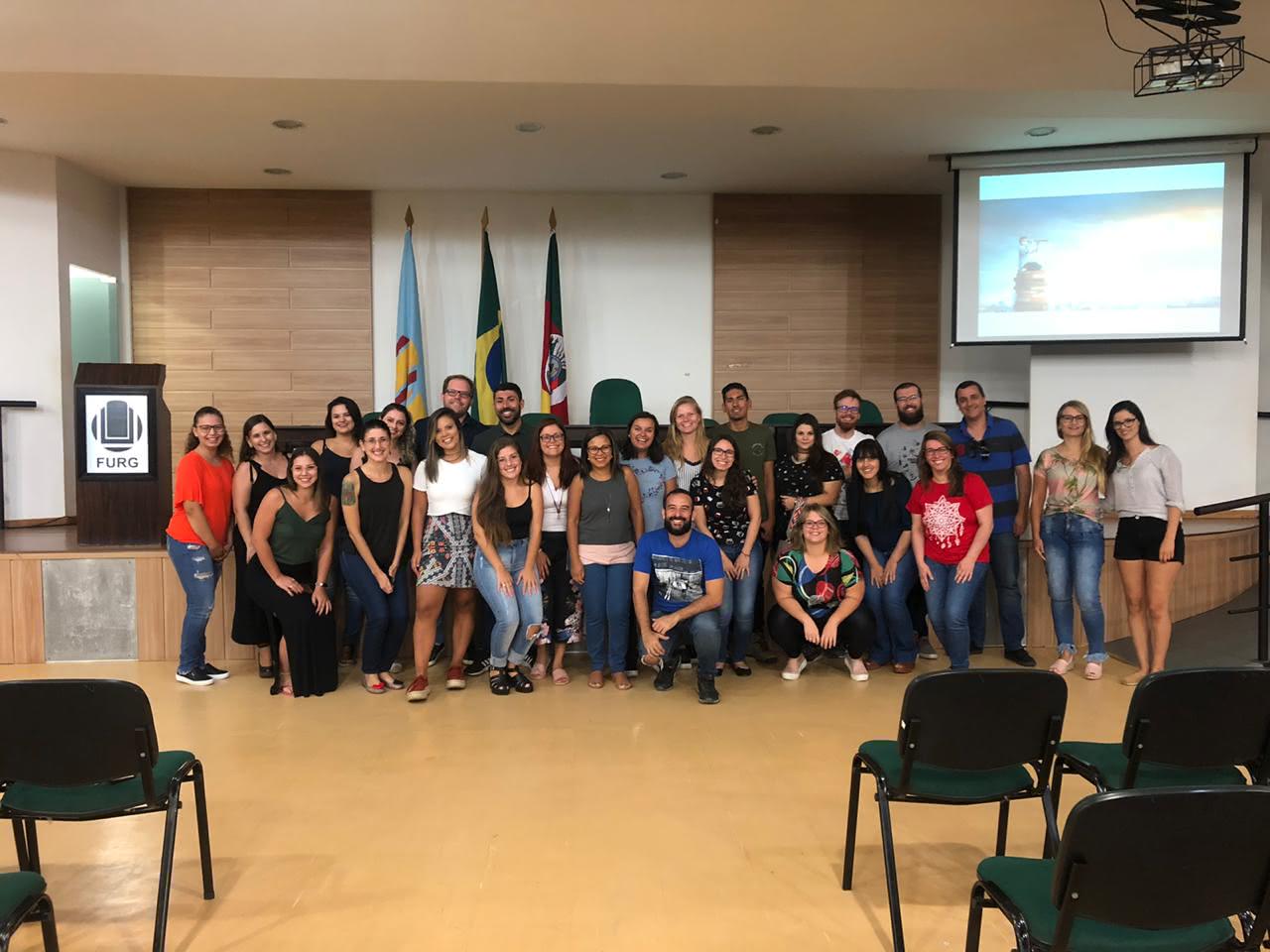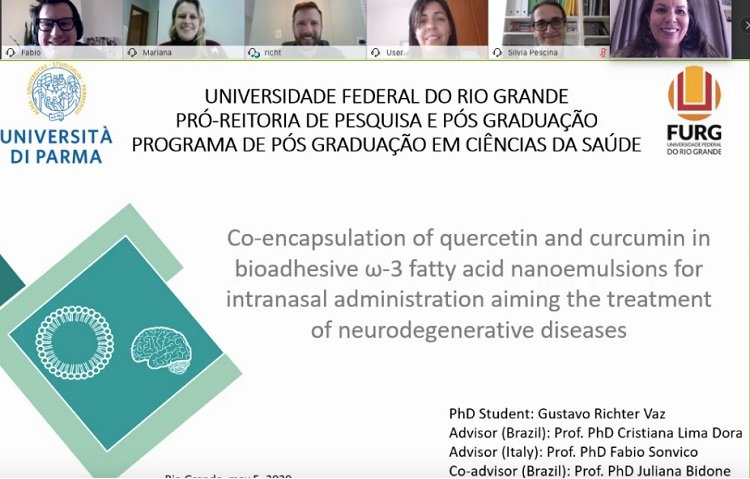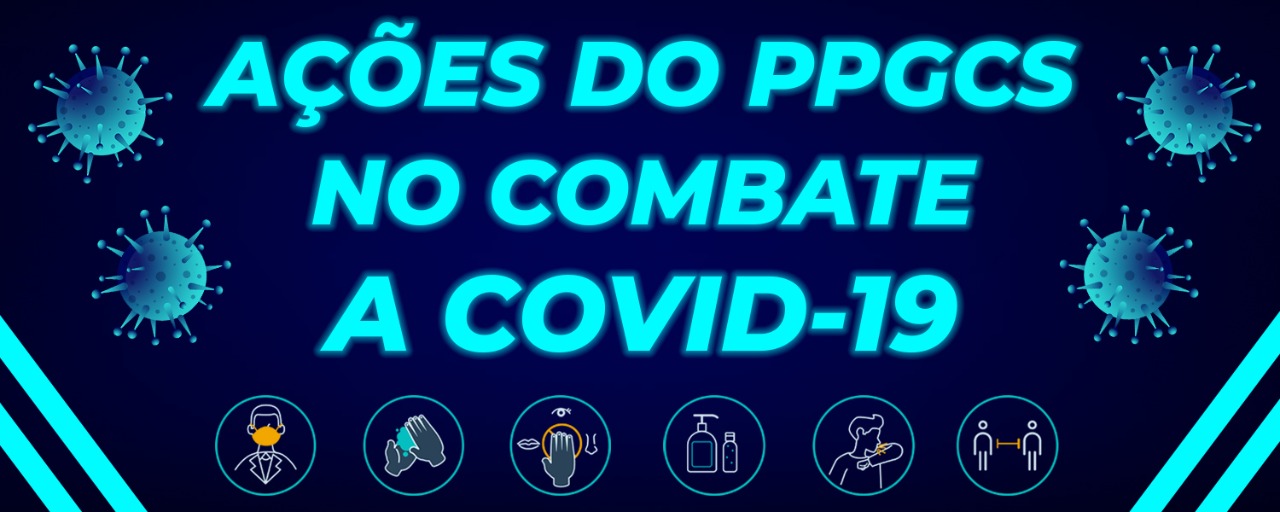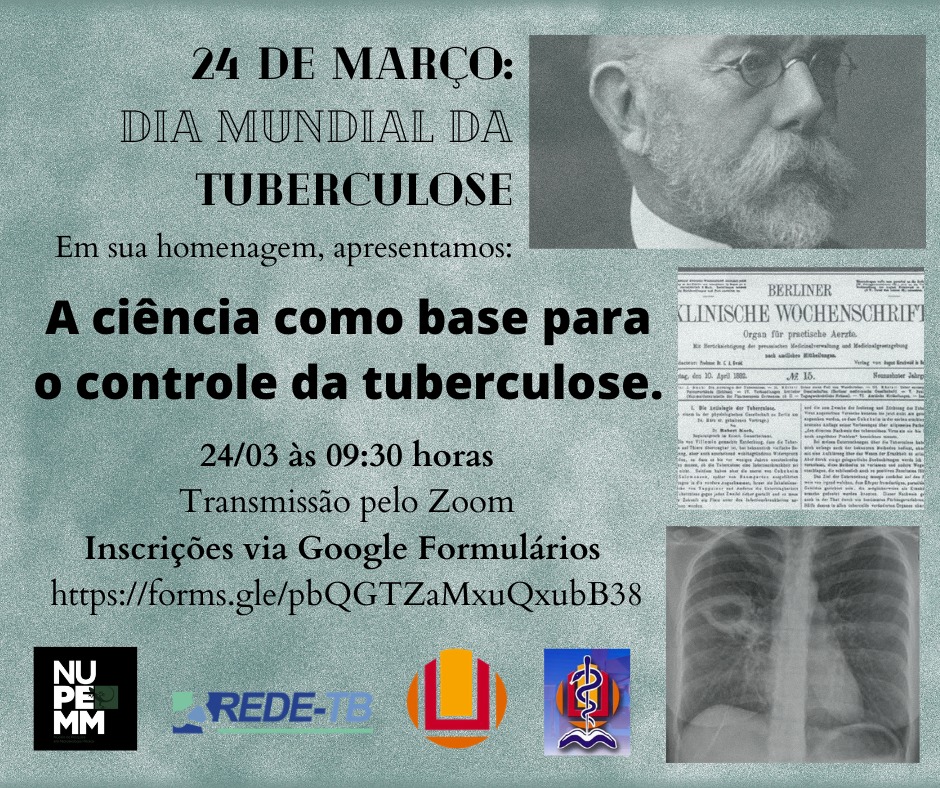Introduction
Program
The Graduate Program in Health Sciences of the Federal University of Rio Grande (PPGCS-FURG) was created in 2005 and through the Master’s and Doctorate Degreesis aimed at the training strengthening of human resources, with emphasis on the lines of Technology applied to the Study of Infectious and Parasitic Agents, Epidemiology, and Health Promotion and Recovery.
AREAS OF CONCENTRATION:
• Preventive medicine
• Investigative Medicine
• Inputs for the health area
RESEARCH LINES:
DEVELOPMENT OF VACCINES, DIAGNOSTIC AND THERAPEUTIC METHODS
Development of inputs, processes and platforms that aim to promote the prevention, diagnosis and treatment of diseases of national interest. The projects related to this line seek to reduce dependence on imported products and collaborating to build a health technology base in southern Brazil.
DRUGS AND MEDICATIONS
From new pharmaceutical forms such as nano carriers as well as natural and synthetic sources of new drugs, the related projects to this line aim to advance in the knowledge of technological and nature potentialities in order to obtain alternatives for infectious parasitic diseases among others.
ENVIRONMENTAL AND OCCUPATIONAL HEALTH
The research line of Environmental and Occupational Health aims to encompass projects that investigate the relationship between the environment (external, internal and work) and determinants of health, well-being and quality of life. Also included are studies on the influence of environmental and occupational factors on morbidity/mortality and on the relevance of a healthy environment to the maintenance of quality of life.
STUDY OF CHRONIC NON-COMMUNICABLE DISEASES
It develops researches in order to study the picture of the Chronic Non-communicable Diseases and their risk factors. It presents a theoretical and analytical framework for its social determination, oriented towards public health actions. It also investigates epidemiological aspects to the health of the population in general, and, especially, vulnerable groups.
BASIC ATTENTION AND AGGREGATES TO THE HEALTH OF THE POPULATION
It develops research on acute infectious or non-infectious diseases. It studies the epidemiology of pandemic, epidemic and endemic diseases and their risk factors. It investigates social determinants and the vulnerability of health promotion. It develops health education surveys; prevention and protection; nutrition of populations; maternal and perinatal health; family planning; immunizations; distribution of medicines; control, health management and evaluation of health services
HOSPITAL INFECTION AND ANTIMICROBIAL RESISTANCE
Study of infectious diseases in which the causative agent is acquired in the hospital environment and that clinically manifest in the patient during its stay or even after discharge. The developed studies are based on the knowledge of factors that are associated with pathogens, host and environment. Though in a more pragmatic way, the impact of the infection on both the patient and the public health is also studied, as well as items related to the cost-effectiveness of new control strategies such as the implementation of protocols for the rational use of antimicrobials, disinfection and antisepsis procedures, diagnostic methods, measures that monitor and control infections. Regarding antimicrobial resistance, the studies are not restricted to hospital infections but also cover those infections acquired in the community: antimicrobial resistance rate, resistance mechanisms, biological cost and fitness of resistant pathogens, dissemination of resistant pathogens, horizontal transmission of associated to resistance genes and the evolution of the resistance against selective pressure by antimicrobial consumption.
STUDY OF PARASITIC INFECT DISEASES
Infectious parasitic diseases are an important cause of morbidity and mortality in our country, especially in people and places with greater social fragility. In this line there is a development of projects that seek to deepen the knowledge regarding prevention, diagnosis and treatment of these diseases.
Coordenação
Coordinator
Pedro Eduardo Almeida da Silva
Lattes CV: http://lattes.cnpq.br/6274475036894377
Assistant Coordinator
Flávio Manoel Rodrigues da Silva Júnior
Lattes CV: http://lattes.cnpq.br/6001686006338661
-
10/10/201912h52Notícia
AGENDA 2030 / 17 ODS
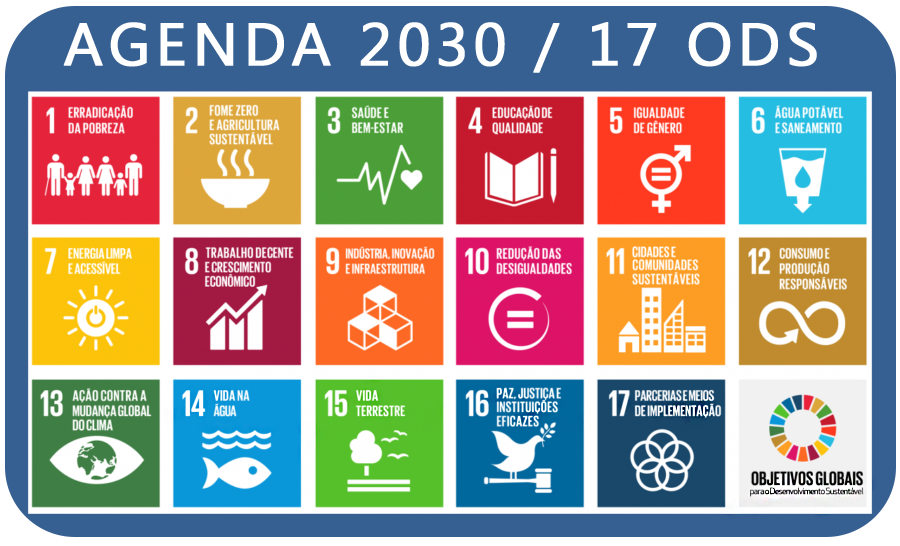
Em 2015, representantes dos 193 Estados-membros da ONU reafirmaram que a erradicação da pobreza em todas as suas formas e dimensões, incluindo a pobreza extrema, é o maior desafio global e um requisito indispensável para o desenvolvimento sustentável.
Ao adotarem o documento “Transformando o Nosso Mundo: A Agenda 2030 para o Desenvolvimento Sustentável” todos países comprometeram-se a tomar medidas ousadas e transformadoras para promover o desenvolvimento sustentável nos próximos 15 anos.
A Agenda 2030 é um plano de ação para as pessoas, o planeta e a prosperidade coletiva e indica 17 Objetivos de Desenvolvimento Sustentável (ODS) distribuídos em 169 metas que visam fundamentalmente promover uma vida digna para todos. Estes 17 ODS são integrados e indivisíveis, e mesclam, de forma equilibrada as três dimensões do desenvolvimento sustentável: a econômica, a social e a ambiental.
As universidades desempenham um papel fundamental dentro do cumprimento desta agenda, estando diretamente envolvida em todos os ODS.
Neste sentido, o PPGCS desenvolve projetos e forma profissionais estreitamente relacionados a Agenda 2030, com particular proximidade com ODS: 3) Saúde e Bem-Estar e 4) Educação de Qualidade.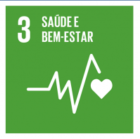
Quanto ao Objetivo 3 (Saúde e Bem-Estar) a agenda 2030 visa assegurar uma vida saudável e promover o bem-estar para todos, em todas as idades. Em acordo com este ambicioso objetivo PPGCS tem atuado em cooperação com gestores de saúde locais, regionais e nacionais para: a redução da mortalidade infantil; melhoria da saúde materna, na luta contra o HIV/Aids, controle da tuberculose e outras doenças infecto-parasitárias. Apesar de melhorias nas taxas de incidência e mortalidade destes agravos, os números continuam inaceitáveis e absolutamente incompatíveis com o potencial econômico do país. Dentre as metas do Objetivo 3 onde há uma clara participação do PGGCS destacam-se:
▪ Reduzir a taxa de mortalidade materna global para menos de 70 mortes por 100.000 nascidos vivos
▪ Acabar com as mortes evitáveis de recém-nascidos e crianças menores de 5 anos, com todos os países objetivando reduzir a mortalidade neonatal para pelo menos até 12 por 1.000 nascidos vivos e a mortalidade de crianças menores de 5 anos para pelo menos até 25 por 1.000 nascidos vivos
▪ Acabar com as epidemias de AIDS, tuberculose, malária e doenças tropicais negligenciadas, e combater a hepatite, doenças transmitidas pela água, e outras doenças transmissíveis
▪ Reduzir em um terço a mortalidade prematura por doenças não transmissíveis por meio de prevenção e tratamento, e promover a saúde mental e o bem-estar
▪ Reforçar a prevenção e o tratamento do abuso de substâncias, incluindo o abuso de drogas entorpecentes e uso nocivo do álcool
▪ Assegurar o acesso universal aos serviços de saúde sexual e reprodutiva, incluindo o planejamento familiar, informação e educação, bem como a integração da saúde reprodutiva em estratégias e programas nacionais
▪ Atingir a cobertura universal de saúde, incluindo a proteção do risco financeiro, o acesso a serviços de saúde essenciais de qualidade e o acesso a medicamentos e vacinas essenciais seguros, eficazes, de qualidade e a preços acessíveis para todos
▪ Reduzir substancialmente o número de mortes e doenças por produtos químicos perigosos e por contaminação e poluição do ar, da água e do solo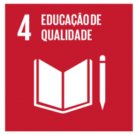
O objetivo 4 (Educação e Qualidade) da agenda 2030 visa assegurar a educação inclusive, baseada nos princípios de direitos humanos, equitativa e de qualidade. A promoção da capacitação dos indivíduos é o centro deste objetivo, que visa ampliar as oportunidades das pessoas mais vulneráveis no caminho do desenvolvimento. O PPGCS foi criado em 2004, com o curso de mestrado, tendo iniciado o curso de doutorado em 2011. Nestes 15 anos de atividade foram titulados cerca de 200 profissionais (140 mestres e 60 doutores) com dissertações, teses e publicações científicas estreitamente alinhadas com as metas do Objetivo 3. Além disso o PGGCS tem especial destaque por sua atuação nas seguintes metas:
▪ Assegurar a igualdade de acesso para todos os homens e mulheres à educação técnica, profissional e superior de qualidade, a preços acessíveis, incluindo universidade
▪ Aumentar substancialmente o número de jovens e adultos que tenham habilidades relevantes, inclusive competências técnicas e profissionais, para emprego, trabalho decente e empreendedorismo
▪ Eliminar as disparidades de gênero na educação e garantir a igualdade de acesso a todos os níveis de educação e formação profissional para os mais vulneráveis, incluindo as pessoas com deficiência, povos indígenas e as crianças em situação de vulnerabilidade
▪ Garantir que todos os alunos adquiram conhecimentos e habilidades necessárias para promover o desenvolvimento sustentável, inclusive, entre outros, por meio da educação para o desenvolvimento sustentável e estilos de vida sustentáveis, direitos humanos, igualdade de gênero, promoção de uma cultura de paz e não-violência, cidadania global, e valorização da diversidade cultural e da contribuição da cultura para o desenvolvimento sustentável
▪ Aumentar o contingente de professores qualificados, inclusive por meio da cooperação internacional para a formação de professores, nos países em desenvolvimento, especialmente os países de menor desenvolvimento relativo e pequenos Estados insulares em desenvolvimento
A vocação do PPGCS e seu histórico de atuação acadêmico-científica o coloca plenamente alinhado com a Agenda 2030, com especial destaque para a articulação entre os objetivos 3 e 4 e as principais metas correspondentes. -
31/10/201810h42Notícia
-
16/08/201811h04Notícia
-
03/10/201713h31Notícia
Admission
PUBLIC CALLS
Specific text for foreigners’ admission
The admission process of Brazilian and foreign students takes place through specific public calls published on this website.
The admission process of Brazilian and foreign students takes place through specific public calls published on this website.
Admissions are usually held between the months of October and December.
Student Profile: Graduates interested in developing research in the health area. Master’s Degree required for the DoctoralProgram.
Applications must follow the guidelines given by an Open Call, exclusively by the site: www.siposg.furg.br.
-
03/10/201713h29Notícia
Infrastructure
Laboratories
LABORATORY OF MOLECULAR BIOLOGY
Located at the Medical School, this laboratory has the necessary infrastructure for the development of projects using as methodology molecular tools such as PCR, cloning, genotyping, gene expression, etc. This multiuser laboratory is aimed especially at the development of projects of bacteriology, mycology, parasitology, and virology.
LABORATORY OF MYCOBACTERIOLOGY
Located at theMedical School, this laboratory is equipped with automatic and semiautomatic machines, as well as it hasa biosafety room, which enables the development of projects where Mycobacterium tuberculosis and other mycobacterioses are managed. In this laboratory, projects are carried out for the development and evaluation of new diagnostic methods for tuberculosis, with the transfer of technology to the local health services. Besides that, there are other projects, such as the development of new antimicrobials and inhibitors of the efflux mechanism to characterize the main mechanisms of resistance to antimicrobials observed in M. tuberculosis, especially to characterize the mechanism of efflux and their possible inhibitors.
LABORATORY OF MOLECULAR MICROBIOLOGY AND CELLULAR CULTURE
Located at the Medical School and recently structured, this laboratory is divided in two rooms: one for manipulation and molecular studies of infectious and parasitic agents, and another for cell culture. It is equipped with real-time StepOne PCR, , DNA/RNA quantificationfluorimeter, CO2 greenhouse, and an inverted microscope.
LABORATORY OF PARASITOLOGY
Located at the Medical School, this laboratory has four rooms where antigens (excretion and secretion, somatic) of different parasite species are produced to be used in in-house immunodiagnostic methods (ELISA and Western Blot). Laboratory diagnosis of human toxocariasis and toxoplasmosis is also performed, as well as the diagnosis of opportunistic intestinal parasites in support to the University Hospital of FURG. In these laboratories, important studies are carried out,aimedat developing new diagnostic methods and searching for new alternatives to control tissue parasitoses, geohelmintoses and protozooses.
LABORATORY OF MYCOLOGY
Located at Medical School, this laboratory is divided into two rooms, one for clinical sample processing (classical mycological, serological tests for immunodiagnosis and antifungigma) and another for microscopy and storage of strains (collection of fungi). In this laboratory, projects related to diagnosis, molecular identification of clinical isolates and seroepidemiology of superficial, cutaneous, subcutaneous, systemic and opportunistic mycoses are carried out, as well as in vitro susceptibility testing of potentially pathogenic fungal microorganisms compared to commercial antifungal, and development of new therapeutic alternatives such as plant and recombinant proteins (lectins).
LABORATORY OF EPIDEMIOLOGY
Located at the Medical School, this laboratoryis equipped with computers, high performance copier and multimedia projector, as well as it has a meeting room and research offices for professors and students involved with epidemiology projects. The software applications Stata IC 13.0, Stata Transfer, Epi-Info 6.0.d and Epidata 3.1 are available in this laboratory.
LABORATORY OF PHARMACOLOGICAL AND TOXICOLOGICAL TESTS
Located at the Institute of Biological Sciences, this laboratory has an infrastructure for studies involving natural products, from extraction and insulation to conditioning, and it is equipped with: rotavaporator, speedvac freeze dryer, glass distiller, drying kilns for extracts and determination of dry weight, analytical precision balances, freezers and -70 °Cfreezer. Regarding the toxicological,pharmacological and biological potential of different products, the laboratory has equipment for the evaluation of analgesic and anti-inflammatory capacity, with machines such as hot plate and analgesimeter (Insight®, Brazil), analgesimeter and digital plethysmometer (Letica® , Barcelona, Spain). It also has equipment to evaluate blood pressure variations by the non-invasive method (Letica®, Barcelona, Spain), which allows the monitoring of experimental animals for long periods. In this laboratory, studies have also been developed to evaluate DNA damage through micronucleus and comet assay tests, in addition to evaluating the antioxidant activity of different tissues. There is also equipment for the development of behavioral assessment techniques such as open field, labyrinth in high cross, radial of eight arms, watermaze, as well as a filming system to record behavioral tasks, and a tank with water to evaluate the physical activity of experimental animals, enabling the application of the forced swimming test.
LABORATORY OF NANOTECHNOLOGY APPLIED TO THE HEALTH AREA
This laboratory is located at the Electronic Microscopy Center of the South Zone of Rio Grande do Sul (CEME-SUL), a multi-user structure for the support of research and graduate studies of FURG and other institutions. It is equipped with an Electronic Transmission Microscope (JEOL JEM 1400 120KV, X-ray, EDS and CCT Camera for image capture), an Electronic Scanning Microscope (JEOL JSM 6610V, with EDS), and a motorized Inverted Confocal Microscope laser scanning and an X-ray Diffractometer, as well as high pressure homogenizer, UV/VIS spectrophotometer, gas exhaust hood, rotavaporator and high vacuum pump, magnetic stirrer with temperature control and stirring speed, multipoint magnetic stirrer , Ultrasonic bath, among others.
LABORATORIES OF THE BIOLOGICAL SCIENCES INSTITUTE
Located at the Institute of Biological Sciences, these laboratories have a wide infrastructure including radioactivity counters (gamma and beta); Spectrofluorimeter; Lyophilizer; Ultra-freezers (-80 ° C); Microplate reader; Low pressure liquid chromatograph; Gas chromatograph; Polygraph recorders spectrophotometers (atomic and UV absorption and visible); Flame photometer (Na +, K + and Ca ++); Chloridrometer; Semi-microsmometer; Dissolved oxygen meters; Blood gas analyzer; Optical, fluorescence, stereoscopic microscopes; Artificial respirators; Sphygmomanometers; Ophthalmoscopes; Electrical stimulators; Centrifuges; Incubating and drying incubators; Laminar flow hoods; Electrocardiographs; oscilloscope; Electronic stimulator for neurophysiology; - analog and digital electronic millivoltmeters; PHmeters; polarimeter; Electrophoresis equipment; Tissue homogenizer; Sonicator; Crushed ice machine; Autoclaves; Image capture system for behavior analysis; - image capture system for molecular biology; Watermaze; Labyrinth on cross; open field; Radial maze; Dodging apparatus; Non-invasive blood pressure recorder; Stereotactic equipment; Microtome; Microcomputers for automated equipment control; Printers coupled with automated equipment; Analyzer of total organic carbon; Real-time PCR; Echo-Doppler system; among others.
LABORATORY OF ENVIRONMENTAL HEALTH STUDIES
Located at the Institute of Biological Sciences, this laboratory is aimed at studies on the impacts of environmental factors on human health, through experimental approaches and populations.There have been developed projects with regard to effects of environmental pollution on growth, neuropsychomotor development in children in the first Years of life, cognitive development and respiratory function in schoolchildren, as well as the effects of physical activity and changes in blood glucose. It is equipped with balance, anthropometer and scales for evaluation ofBayley, Denver, WiSC III and Ravens’sdevelopment. The recent acquisition of a portable digital spirometer and a glucometer has enabled the evaluation of respiratory function and glycaemia in field activities.
INSTITUTE OF BIOLOGICAL SCIENCES’SBIOTERIUM OF CONVENTIONAL RODENTS
This bioterium (animal facility) has three rooms separated by doors: washing room, mice room, and rat room. All the rooms have the necessary infrastructure for the activities developed, and the access to this animal facility is restricted to previously designated employees and researchers. All activities carried out in the bioterium follow standard operating procedures which are periodically reviewed.
MEDICAL SCHOOL’S BIOTERIUM
This bioterium (animal facility) has a room for the maintenance of mice and rats with air-conditioning (temperature, humidity and light/dark cycle controlled). It has two animal maintenance rooms (rat room and mice room), two experiment rooms, a washing/disinfecting room, a changing room (clothes), and a storage room.
FACILITIES
1-LABORATORIES
CENTRAL BIOTERIUM / FURG
MEDICAL SCHOOL SECTORIAL BIOTERIUM / FURG
ICB/FURG CONVENTIONAL RODENT SECTOR BIOTERIUM
CLINICAL ANALYSIS LABORATORY
HUMAN ANATOMY LABORATORY
MOLECULAR BIOLOGY LABORATORY
LABORATORY OF PHARMACOLOGICAL AND TOXICOLOGICAL ASSAYS (LEFT)
EPIDEMIOLOGY LABORATORY
MYCOBACTERIOLOGY LABORATORY
MYCOLOGY LABORATORY
MOLECULAR MICROBIOLOGY AND CELL CULTURE LABORATORY
EXPERIMENTAL MORPHOLOGY LABORATORY
NANOTECHNOLOGY APPLIED TO HEATLH AREA LABORATORY (Nanobio)
PARASITOLOGY LABORATORY
ENVIRONMENTAL HEALTH STUDIES LABORATORY (LAPESA)
BIOLOGICAL SCIENCES INSTITUTE LABORATORIES
HEALTH PROMOTION CORE (NUPROS)
-
03/10/201713h28Notícia
Teachers
Ana Luiza Muccillo-Baisch
E-mail: anabaisch@gmail.com
Lattes CV: http://buscatextual.cnpq.br/buscatextual/visualizacv.do?id=K4781185U9
Line of research: ENVIRONMENTAL AND OCCUPATIONAL HEALTH / DRUGS AND MEDICATIONS
- Ana Maria Barral de Martínez
E-mail: nani60@gmail.com
Lattes CV: http://buscatextual.cnpq.br/buscatextual/visualizacv.do?id=K4728388D0
Line of research: STUDY OF PARASITIC INFECT DISEASES
- Andrea Von Groll
E-mail: avongroll@hotmail.com
Lattes CV: http://buscatextual.cnpq.br/buscatextual/visualizacv.do?id=K4761557U2
Lines of research: STUDY OF PARASITIC INFECT DISEASES / HOSPITAL INFECTION AND ANTIMICROBIAL RESISTANCE
- Carla Vitola Gonçalves
E-mail: carlavg@brturbo.com.br
Lattes CV: http://buscatextual.cnpq.br/buscatextual/visualizacv.do?id=K4755199H6
Line of research: STUDY OF PARASITIC INFECT DISEASES / BASIC ATTENTION AND AGGREGATES TO THE HEALTH OF THE POPULATION
- Carlos James Scaini
E-mail: cjscainifurg@gmail.com
Lattes CV: http://buscatextual.cnpq.br/buscatextual/visualizacv.do?id=K4783523J5
Line of research: DEVELOPMENT OF VACCINES, DIAGNOSTIC AND THERAPEUTIC METHODS / DRUGS AND MEDICATIONS
- Cristiana Lima Dora
E-mail: cristianadora@gmail.com
Lattes CV:: http://buscatextual.cnpq.br/buscatextual/busca.do
Line of research: DRUGS AND MEDICATIONS
- Daniela Fernandes Ramos Soares
E-mail: daniferamos@gmail.com
Lattes CV: http://buscatextual.cnpq.br/buscatextual/visualizacv.do?id=K4710426Z5
Line of research: DEVELOPMENT OF VACCINES, DIAGNOSTIC AND THERAPEUTIC METHODS / DRUGS AND MEDICATIONS
Edison Luiz Devos Barlem
E-mail: ebarlem@gmail.com
Lattes CV: http://buscatextual.cnpq.br/buscatextual/visualizacv.do?id=K4138430P7
Line of research: BASIC ATTENTION AND AGGREGATES TO THE HEALTH OF THE POPULATION
- Flávio Manoel Rodrigues da Silva Júnior
E-mail: f.m.r.silvajunior@gmail.com
Lattes CV: http://buscatextual.cnpq.br/buscatextual/visualizacv.do?id=K4734599E6
Line of research: BASIC ATTENTION AND AGGREGATES TO THE HEALTH OF THE POPULATION / ENVIRONMENTAL AND OCCUPATIONAL HEALTH / DEVELOPMENT OF VACCINES, DIAGNOSTIC AND THERAPEUTIC METHODS
Ivy Bastos Ramis de Souza
E-mail: ivybramis@gmail.com
Lattes CV: http://lattes.cnpq.br/7081175571423801
Line of research: STUDY OF PARASITIC INFECT DISEASES
- Juraci Almeida Cesar
E-mail: julianomarangoni@furg.br
Lattes CV: http://buscatextual.cnpq.br/buscatextual/visualizacv.do?id=K4784363E4
Line of research: BASIC ATTENTION AND AGGREGATES TO THE HEALTH OF THE POPULATION / DRUGS AND MEDICATIONS
- Karina dos Santos Machado
E-mail: karinaecomp@yahoo.com.br
Lattes CV: http://lattes.cnpq.br/3528633359332021
Line of research: DEVELOPMENT OF VACCINES, DIAGNOSTIC AND THERAPEUTIC METHODS
- Linjie Zhang
E-mail: zhanglijie63@yahoo.com.br
Lattes CV: http://buscatextual.cnpq.br/buscatextual/visualizacv.do?id=K4791351U5
Line of research: BASIC ATTENTION AND AGGREGATES TO THE HEALTH OF THE POPULATION
- Luciana Farias da Costa de Avila
E-mail: lucostaavila@hotmail.com
Lattes CV: http://buscatextual.cnpq.br/buscatextual/visualizacv.do?id=K4208081Y9
Line of research: STUDY OF PARASITIC INFECT DISEASES
- Marcelo Gonçalves Montes D'oca
E-mail: marcelodoca@hotmail.com
Lattes CV: http://lattes.cnpq.br/6909434144537391
Line of research: DEVELOPMENT OF VACCINES, DIAGNOSTIC AND THERAPEUTIC METHODS
- Mariana Appel Hort
Email: marianaappel@gmail.br
Lattes CV: http://buscatextual.cnpq.br/buscatextual/visualizacv.do?id=K4773959J6
Line of research: DEVELOPMENT OF VACCINES, DIAGNOSTIC AND THERAPEUTIC METHODS / DRUGS AND MEDICATIONS
- Melissa Orzechowski Xavier
E-mail: melissaxavierfurg@gmail.com
Lattes CV: http://buscatextual.cnpq.br/buscatextual/visualizacv.do?id=K4776164Z7
Line of research: STUDY OF PARASITIC INFECT DISEASES
- Pedro Eduardo Almeida da Silva
E-mail: pedrefurg@gmail.com
Lattes CV: http://buscatextual.cnpq.br/buscatextual/visualizacv.do?id=K4761822J0
Line of research: STUDY OF PARASITIC INFECT DISEASES / DEVELOPMENT OF VACCINES, DIAGNOSTIC AND THERAPEUTIC METHODS /
HOSPITAL INFECTION AND ANTIMICROBIAL RESISTANCE
- Rodrigo Dalke Meucci
E-mail: rodrigodalke@gmail.com
Lattes CV: http://lattes.cnpq.br/5709335190904784
Line of research: BASIC ATTENTION AND AGGREGATES TO THE HEALTH OF THE POPULATION
- Samuel de Carvalho Dumith
E-mail: scdumith@yahoo.com.br
Lattes CV: http://buscatextual.cnpq.br/buscatextual/visualizacv.do?id=K4779969D5
Line of research: BASIC ATTENTION AND AGGREGATES TO THE HEALTH OF THE POPULATION
- Vanusa Pousada da Hora
E-mail: dahoravp@gmail.com
Lattes CV: http://buscatextual.cnpq.br/buscatextual/visualizacv.do?id=K4764241Z9
Line of research: STUDY OF PARASITIC INFECT DISEASES
ADJUNCT PROFESSORS
Mirele dos Santos Saes
E-mail: mirelleosaes@gmail.com
Lattes CV: http://lattes.cnpq.br/3034427807286952
Line of research: BASIC ATTENTION AND AGGREGATES TO THE HEALTH OF THE POPULATION
Sílvio Omar Macedo Prietsch
E-mail: silvio@brturbo.com.br
-
Lattes CV: http://buscatextual.cnpq.br/buscatextual/visualizacv.do?id=K4700642U8
Line of research: BASIC ATTENTION AND AGGREGATES TO THE HEALTH OF THE POPULATION
-
Visitantes
- Ines Claudia Schadock
-
E-mail: ines.schadock@furg.br
Lattes CV: http://lattes.cnpq.br/2885551048150341
Line of research:
-
03/10/201713h26Notícia
Curricular Structure
CURRICULUM STRUCTURE
1- SUBJECTS
MANDATORY SUBJECTS
MASTER'S
17029P BIOETHICS
17072P STATISTICS APPLIED TO HEALTH
14001P RESEARCH METHODOLOGY
17040P SEMINARS I
17019P ORIENTED STUDY
12004P ORIENTED STUDY II
12005P ORIENTED STUDY III
21006P DISSERTATION PREPARATION (MASTER OF HEALTH SCIENCES)
21106P TEACHING INTERNSHIP I (MANDATORY FOR SCHOLARSHIP STUDENTS)
DOCTORATE
17029P BIOETHICS
17072P STATISTICS APPLIED TO HEALTH
14001P RESEARCH METHODOLOGY
17040P SEMINARS I
17041P SEMINARS II
17065P DOCTORAL ORIENTED STUDY I
17066P DOCTORAL ORIENTED STUDY II
17067P DOCTORAL ORIENTED STUDY III
17068P DOCTORAL ORIENTED STUDY IV
17069P DOCTORAL ORIENTED STUDY V
17070P DOCTORAL ORIENTED STUDY VI
17071P THESIS ELABORATION IN HEALTH SCIENCES
17076P TEACHING INTERNSHIP DOCTORATE I
17077P TEACHING INTERNSHIP DOCTORATE II
ELECTIVE SUBJECTS (MASTER'S / DOCTORATE)
17037P APPROACHES ON SEXUALLY TRANSMITTED VIRAL INFECTIONS
17084P MOLECULAR BASIS OF OBESITY AND DIABETES
17021P MOLECULAR BIOLOGY OF MICROORGANISMS
12008P HEALTH BIOSAFETY
12001P EXPERIMENTAL SURGERY
12010P DISCUSSIONS ON VIROLOGY
17085P BACTERIAL ORIGIN OPPORTUNISTIC INFECTIONS IN IMMUNOCOMPROMISED PATIENTS
13054P BASIC EPIDEMIOLOGY
13055P EPIDEMIOLOGY HEALTH SERVICES
12013P MULTIDISCIPLINARY STUDY OF INFECTIOUS-PARASITIC DISEASES WITH POSSIBLE VERTICAL TRANSMISSION
15117P TOXICOLOGICAL GENETICS APPLIED TO HEALTH SCIENCE
17074P CELLULAR AND MOLECULAR IMMUNOLOGY
17031P MYCOBACTERIOLOGY
12003P MEDICAL MYCOLOGY - HEALTH SCIENCES GRADUATE PROGRAM
17036P NANOTECHNOLOGY APPLIED TO HEALTH
17073P APPLIED QUANTITATIVE METHODOLOGY WORKSHOP IN HEALTH SCIENCES
17030P EMERGING AND RE-EMERGING PARASITIC DISEASES
16075P PUBLIC HEALTH POLICIES
17097P TE – GEOPROCESSING APPLICATIONS IN HEALTH AREA
17098P TE – ADVANCES IN THE DIAGNOSIS OF INFECTIOUS DISEASES
17101P TE – MOLECULAR BIOLOGY APPLIED TO PARASITOLOGY
17095P TE – CHROMATOGRAPHY APPLIED TO HEALTH SCIENCES
17099P TE – DISCUSSIONS IN IMMUNOLOGY
17100P TE – CLUB OBESITY JOURNAL (JCO)
17062P TE CS: UPDATE ON INFECTIOUS DISEASES
17060P TE CS: BIOTECHNOLOGY APPLIED TO HEALTH SCIENCES
17080P TE CS: MOLECULAR DIAGNOSIS APPLIED TO HUMAN HEALTH
17079P TE CS: SUBSTANTIATION AND INSTRUMENTATION IN HIGH EFFICIENCY LIQUID CHROMATOGRAPHY
17083P TE CS: OXIDATIVE STRESS IN PATHOPHYSIOLOGICAL PROCESSES: MECHANISMS AND THERAPEUTIC IMPLICATIONS OF ANTIOXIDANTS
17063P TE CS: I WINTER COURSE IN HEALTH SCIENCES
17082P TE CS: SEXUALLY TRANSMITTED INFECTIONS
17081P TE CS: HUMAN MICROBIOME
12015P TE CS: PROMOTING MENTAL HEALTH IN CONTEXTS OF SOCIAL VULNERABILITY
17059P TE CS: RATIONAL USE OF MEDICINES
17096P TE CS: ENGLISH PRESENTATION SKILLS
17078P CELL CULTURE TECHNIQUES
17042P LABORATORY TECHNIQUES OF MYCOLOGICAL DIAGNOSIS
17075P ADVANCED TOPICS IN MEDICAL MYCOLOGY
17039P SPECIAL TOPICS IN EPIDEMIOLOGY II
17024P TOXICOLOGY APPLIED TO HUMAN HEALTH
17025P ZOONOSES
-
03/10/201713h26Notícia
-
03/10/201713h25Notícia
Introduction
Program
The Graduate Program in Health Sciences of the Federal University of Rio Grande (PPGCS-FURG) was created in 2005 and through the Master’s and Doctorate Degreesis aimed at the training strengthening of human resources, with emphasis on the lines of Technology applied to the Study of Infectious and Parasitic Agents, Epidemiology, and Health Promotion and Recovery.
Area of Concentration:
* Preventive medicine
* Investigative medicine
* Health inputs
RESEARCH AREAS:
Research Area: PRIMARY CARE AND HEALTH PROBLEMS OF THE POPULATION
Description:
It develops researches on acute infectious or non-infectious diseases; it studies epidemiology of epidemic, pandemic and endemic diseases and their risk factors; it investigates social determinants and the vulnerability of health promotion. It develops research on health education; prevention and protection; population nutrition; maternal and perinatal health; family planning; immunizations; distribution of medicines; control, health management and evaluation of health services.
Research Area: DEVELOPMENT OF VACCINES, DIAGNOSTIC AND THERAPEUTIC METHODS;
Description:
Development of inputs, processes and platforms to promote the prevention, diagnosis and treatment of diseases of national interest. The projects related to this area seek to reduce dependence on imported products by collaborating to build a health technology base in southern Brazil.
Research Area: STUDY OF CHRONIC NONCOMMUNICABLE DISEASES
Description:
It develops research in order to study the framework of NCCDs and its risk factors; it presents a theoretical and analytical framework for its social determination, oriented to public health actions; it investigates epidemiological aspects of the health of the population in general and vulnerable groups in particular.
Research Area: STUDY OF INFECTIOUS PARASITIC DISEASES
Description:
Infectious parasitic diseases are an important cause of morbidity and mortality in our country, occurring especially in people and places with greater social fragility. In this area, projects are developed to deepen knowledge regarding the prevention, diagnosis and treatment of these diseases
Research Area: DRUGS AND MEDICINES
Description:
From new pharmaceutical forms such as nano carriers and natural and synthetic sources of new drugs the projects related to this line aim to advance the knowledge of technological potentials and nature in order to obtain alternatives for infectious parasitic diseases among others.
Research Area: HOSPITAL INFECTION AND ANTIMICROBIAL RESISTANCE
Description:
Study of infectious diseases in which the causative agent is acquired in hospital environment and which are clinically manifested in the patient during his/her stay or even after his/her discharge. The studies developed on this area are based on the knowledge of factors associated with pathogens, host and environment. Also, in a more pragmatic form, the impact of infection for both the patient and public health, cost-effectiveness of new control strategies such as implementation of protocols for the rational use of antimicrobials, disinfection and antisepsis procedures, diagnostic methods, monitoring and control measures of infections are studied. In relation to antimicrobial resistance, the studies are not restricted to hospital infections but also those acquired in the community, such as antimicrobial resistance rate, resistance mechanisms, biological cost and fitness of resistant pathogens, dissemination of resistant pathogens, horizontal transmission of genes associated with resistance and the evolution of resistance against selective pressure by consumption of antimicrobials.
Research Area: ENVIRONMENTAL AND OCCUPATIONAL HEALTH;
Description:
The environmental and Occupational Health Research line aims to encompass projects that investigate the relationship between the environment (external, internal and work) and determinants of health, well-being and quality of life. Studies on the influence of environmental and occupational factors on morbidity and mortality and the relevance of the healthy environment for the maintenance of quality of life are also included.
Coordination
Coordinator
Flávio Manoel Rodrigues da Silva Júnior
Lattes CV: http://lattes.cnpq.br/6001686006338661
Assistant Coordinator
Carlos James Scaini
Lattes CV: http://lattes.cnpq.br/6274475036894377


